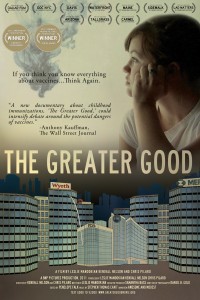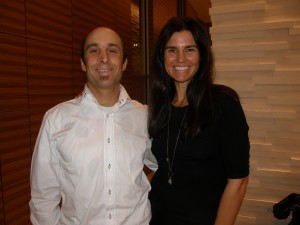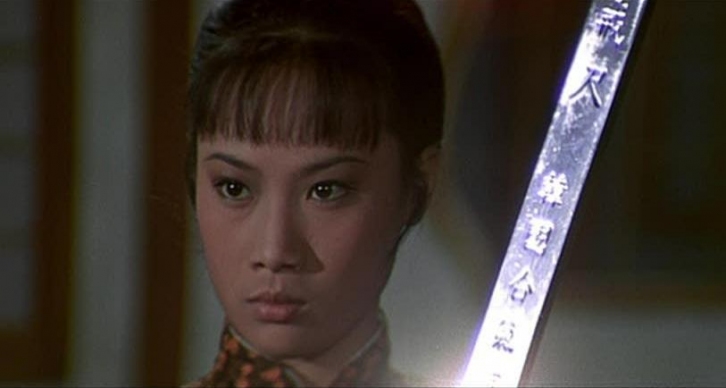 When my wife and I had a child, I was horrified at the idea of my kid getting stuck with needles, but I didn’t question the medicine behind it. I figured, if my pediatrician was recommending it, it was the best course for my son.
When my wife and I had a child, I was horrified at the idea of my kid getting stuck with needles, but I didn’t question the medicine behind it. I figured, if my pediatrician was recommending it, it was the best course for my son.
My child’s mother, on the other hand, didn’t feel the same way. Having done some research on the subject, she suggested slowing it all down and spreading the shots out over time. To her credit, and without realizing it, she’s brought us into the great vaccination debate.
If you’re a parent (or know one), you might have had a similar conversation, and you might have already made up your mind about the connection between vaccination and disease. A new documentary, “The Greater Good”, adds perspective to the issue, asking how much of a good thing a person can take until it’s not all that good any more. (The film opened in New York this weekend.)
“It is an advocacy film,” says “The Greater Good” producer Chris Pilaro, “not a work of journalism and I think that’s very clear in the film, as it should be.”
The filmmakers chose to follow three families whose lives were adversely affected by vaccines because, as director-producer Kendall Nelson says, “Historically, those stories were really not being told… We figured that the general public already believed that vaccines were essentially a godsend.”
One thread follows young Jordan King, who before being vaccinated was a “normal,” happy toddler. After being vaccinated, Jordan’s behavior changed dramatically — He ended up diagnosed with autism. His case is one of many that have indelibly linked vaccines to autism.

After her youngest child died after receiving vaccinations, Stephanie Christner, a doctor, dedicated her life to finding connections between vaccination and disease.
The most persuasive story is that of Gabi Swank, a teenage girl who saw ads on MTV for the cervical cancer vaccine Gardasil and insisted that her mom get her on it. After taking the drug, Gabi experienced a dramatic decline in her health and her family paid a deep financial and emotional cost. Despite her upbeat demeanor and refusal to be perceived as a victim, Gabi’s story is a tragic one.
One thing that was clear to the Sun Valley, Idaho-based filmmakers Nelson and Pilaro (and both parents of newborns) was that if all the facts were shared in documentary form, and soberly so, there could be an audience for it. They gained the co-operation of the Centers for Disease Control and Prevention and the Food and Drug Administration and proceeded to interview medical experts, pharmaceutical representatives and lawmakers on opposite sides of the issue.
“Pharmaceutical companies let us in and were quite willing to talk,” Nelson says. “I think it’s because both sides feel so passionately about the issue, so they feel compelled to tell their sides of the story.”
“We wanted to talk to everybody along that spectrum… that was our way in,” says Pilaro.
What’s clear after watching the film is not that vaccinations are necessarily bad but that every child is different and each will have a different response to them. But it’s a hard case to make when your doctor is following state law.
“In the end, what everyone wants is a safe vaccine program,” says Pilaro. “The United States uses the most vaccines and yet we’re not the most healthy country in the world. We should know that we’re doing this for the right reasons.”
“The Greater Good” began a theatrical run at IFC Center in New York City, this weekend. For more information about the film, visit greatergoodmovie.org.


